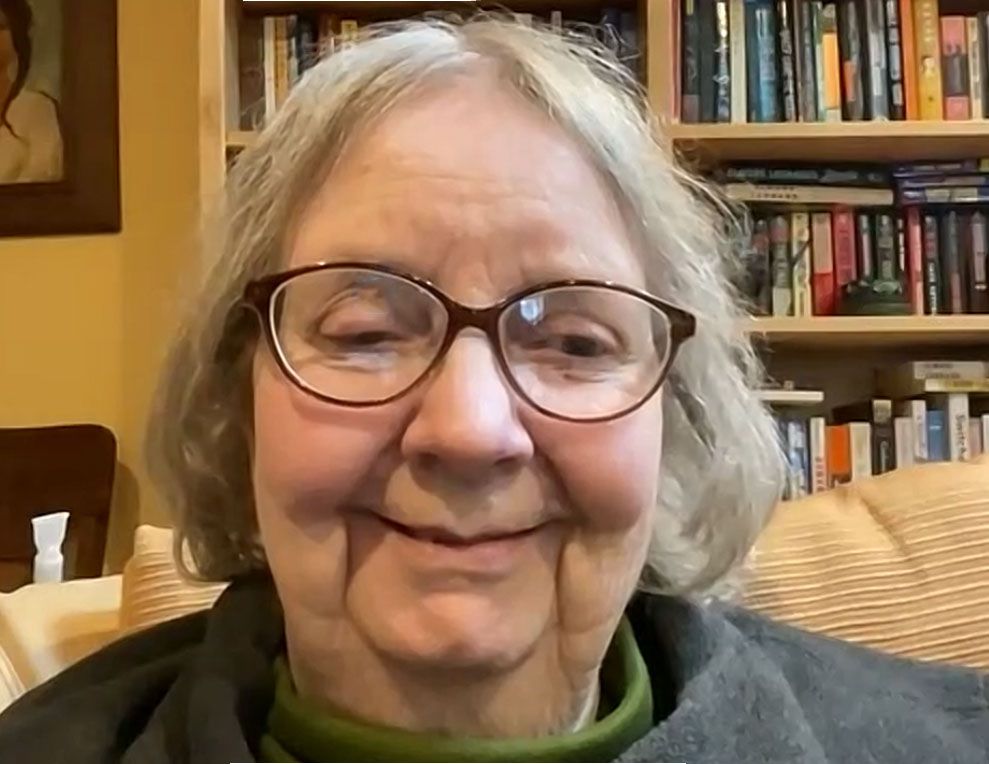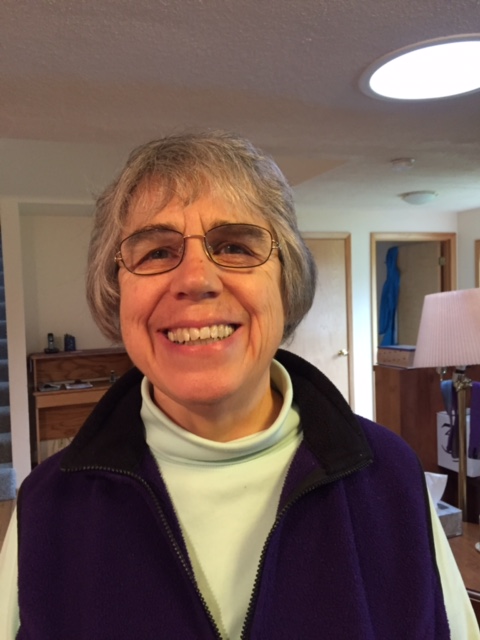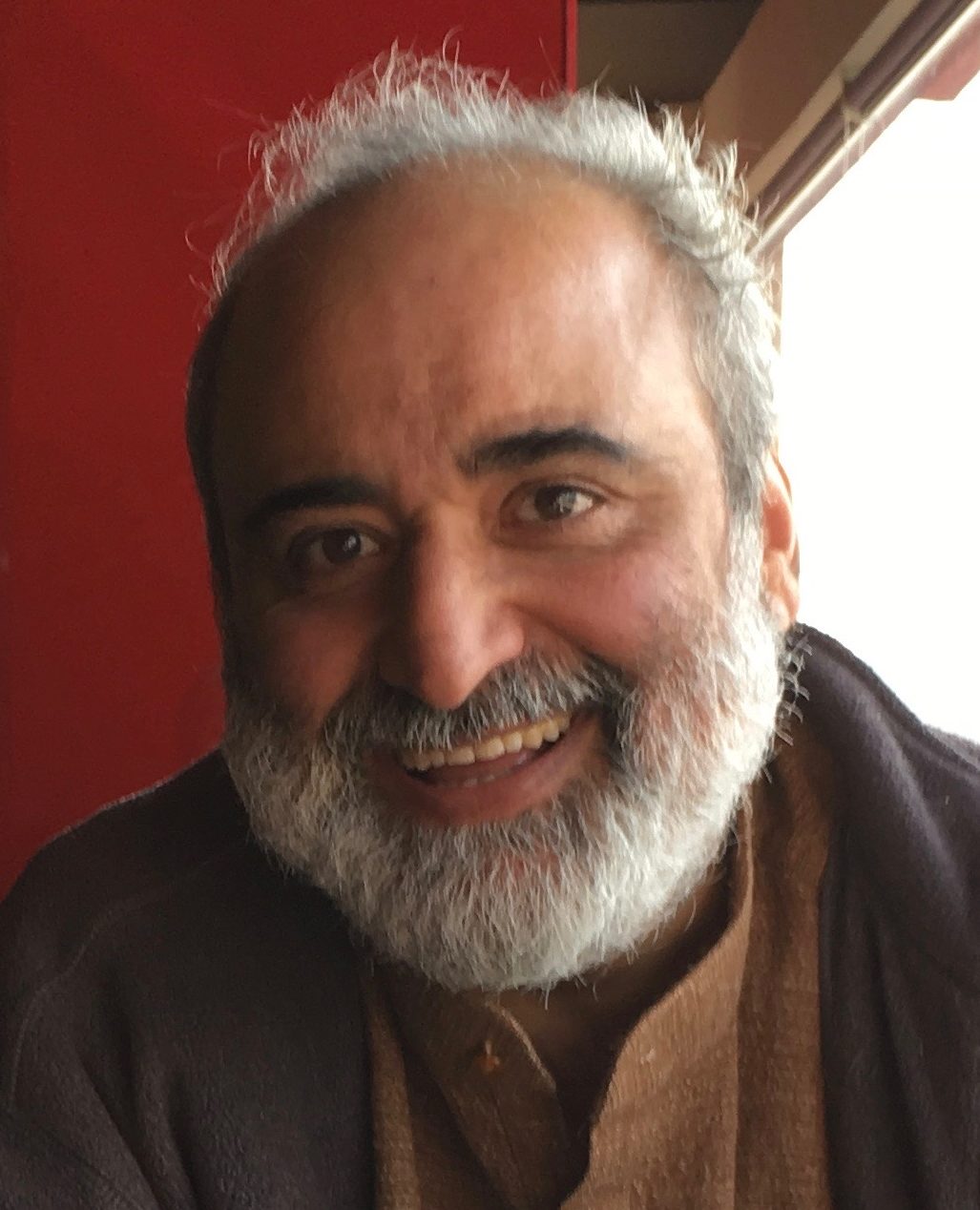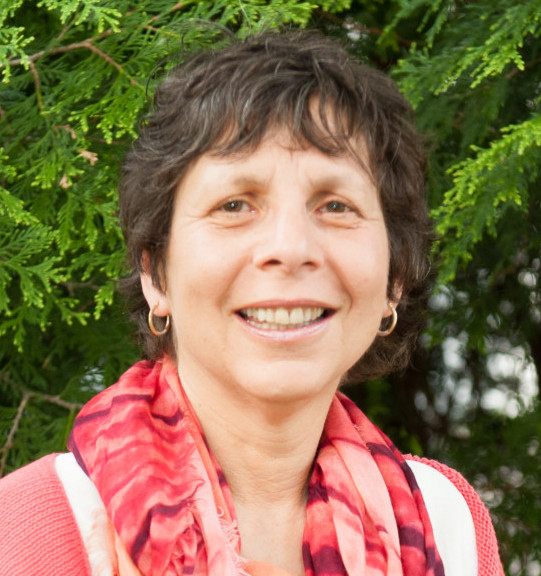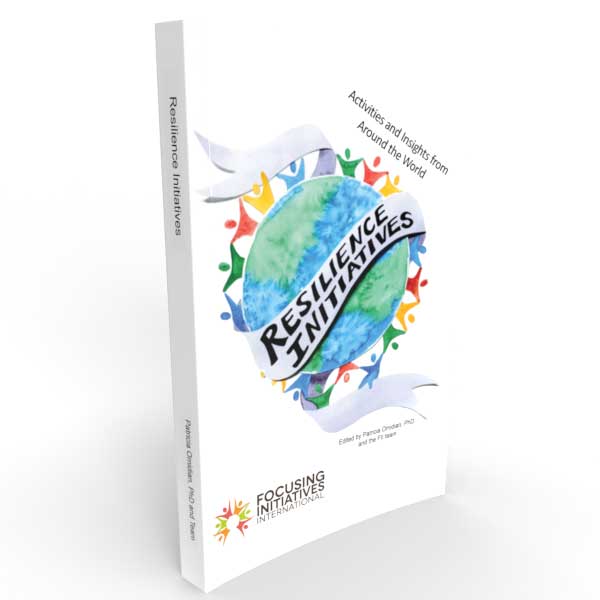No one calls Muhammad Ali by just one of his names. He is never just “Muhammad” or just “Ali”, but always both names together “Muhammad Ali” like the American boxer. His father named him after the famous American because that great man struggled from poverty to success without abandoning his principles.
Twelve-year-old Muhammad Ali knows about poverty. And he knows about the daily struggle to survive. He lives with his parents, three brothers, a sister, and a grandmother in a small mud house with one narrow bed. His father sleeps in the bed and the rest on the floor. And when his two married sisters visit, they crowd into the same bedroom.
When Muhammad Ali was eight, his father became too sick to continue at his job in a tandoor bakery, where fumes from the oven gave him severe chronic asthma. With no money to pay school fees, the children were taken out of school and the two oldest boys were put to work. The oldest brother, who had finished 7th grade, found employment as a driver. Muhammad Ali started working for an auto mechanic.
He liked that job, but the family was forced to move to a smaller home in a different neighborhood. The distance was too far for Muhammad Ali to walk to the auto shop, and travel by bus or rickshaw was too expensive, so he found a job with a tailor near their new home.
Sitting still all day long making small stitches with the tailor sitting right in front of him supervising his every move was not to Muhammad Ali’s liking. An active boy, he missed the independence of the auto shop, where he was given a task and left alone to complete it.
He gladly left that job to work as an assistant in a small retail store. Then two of his uncles, who were selling donuts and fruit as street vendors, asked him to work for them. His parents were happy, thinking he would be safer with family.
But being a street vendor is not an easy job. Each day Muhammad Ali must get up early and eat a hasty breakfast of dry bread and tea before leaving the house at 7 AM. He must get to the wholesale market early in order to get the best fruit. He sells seasonal fruits from a heavy old wooden cart that he rents from a neighbor for fifty rupees a day. He loads the fruit on the cart and pushes it down narrow streets to reach the market place.
It is illegal to sell on the street, so he must find a spot on a main thoroughfare near an alley or corner where he can run to hide the cart when the municipal inspectors come by. If he cannot secure a good place on a busy street, he will have to park the cart on a side street where there are fewer customers. If the inspectors find him, they will confiscate the cart and the fruit.
His work day is long. He seldom returns home before dark – usually around 11 PM. His earnings are typically a little less than a dollar each day.
Life in poverty is often marked by bad luck. Small difficulties quickly become big ones. Every day something unexpected happens. The side streets are made of mud – dried hard and deeply rutted. The cart is big and the boy is small.
One very hot day, while pushing the cart, Muhammad Ali felt a thump and a big bump as the cart encountered a deep rut at the wrong angle and tipped to one side with a great shudder. A wheel had fallen off. He ran to inspect the damage, but could see right away that he could not repair it by himself. A less determined child might have given up, but Muhammad Ali had a family to feed. He gathered up the fruit and brought it to his uncle to sell from his cart. Then Muhammad Ali looked for another way to make money.
He went to a nearby bakery whose donuts he had sold before on commission and soon had a tray filled with pastries balanced on his head. Back and forth he went, taking the donuts from door to door and returning to the shop for more.
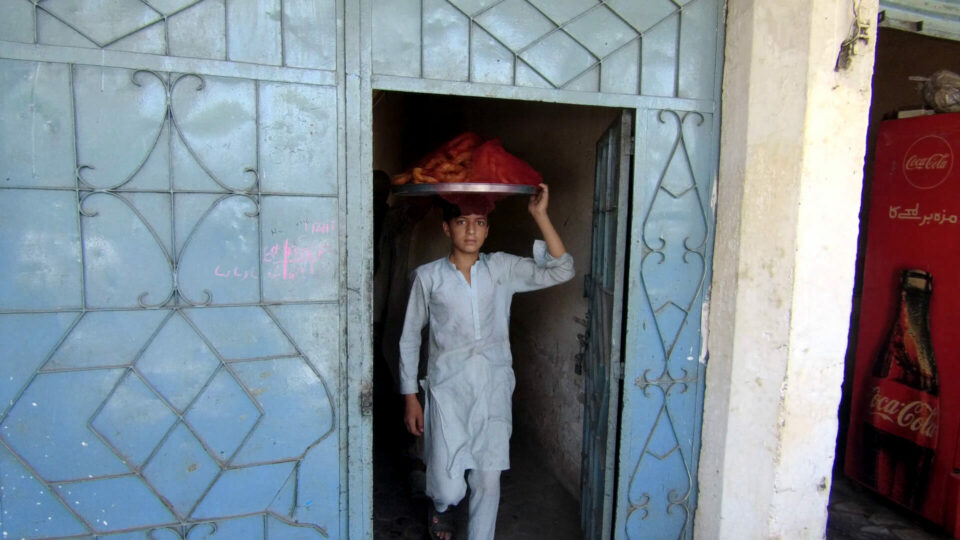
The day became hotter and hotter. The big metal tray was heavy – hard to lift up onto his head, so he dipped his knees allowing his customers to pick their pastries without his having to lower ad raise it each time. The same rough road that had broken his cart now laid traps for him – deep ruts and pot holes forced him to step carefully, never letting down his guard. A single misstep could tip the tray and scatter the donuts into the dirty street – losing the day’s earnings. Yet he dared not complain or stop to rest. Customers prefer to buy from a cheerful face and expect quick service.
He stopped only once, briefly sitting on a curb in the marketplace to eat bread dipped in chickpea soup. He ate quickly to be done before the prime selling lunch time. Then he was on his way again, selling donuts up and down all the side streets.
He had hoped for an easier day selling from a cart to customers that sought him out. A cart, once settled in place for the day, might even provide him a little shade from the blistering sun.
Business slowed down by 3 o’clock, allowing Muhammad Ali to go home and tell the neighbor where to find his broken cart. Then, still carrying the heavy tray, he took his two younger brothers with him to Brighter Tomorrow – a free school for working children. This was always the best part of his day.
For the next two hours, his body rested while he practiced writing and learning his numbers. He had not forgotten his job in the auto shop and still hoped to pursue that career someday. Automobile mechanics needed to read instructions and do arithmetic.
There was food to eat at Brighter Tomorrow, too – a good meal more filling than the hasty breakfast and lunch he had already had. Afterwards, before heading back to work, well-rested, he had enough energy to kick a football back and forth with his school friends. For a short while it almost felt like the life he’d had when he was a child, before his father got sick.
After school, Muhammad Ali went back to work, helping his uncles sell the last of the fruit to late shoppers, taking more baked goods from house to house for families to eat with their evening meals.
When he finally got home that night, he was almost too tired to eat the dry piece of bread his mother
had left for his dinner, but he was proud that he had brought home three unsold pears only slightly bruised – one for his parents to share and two for the children’s breakfast. He entered the crowded bedroom and found a place to sleep on the floor near the door so he could get up early the next morning without disturbing the children. He hoped the cart would be repaired by its owner so he could rent it again. It would be hot again the next day, and fruit sold better than donuts on the really hot days. Besides, his legs and arms were still aching from the weight of the heavy tray.
Muhammad Ali thought of his time at school. He knew that education was essential if he wanted to become successful like his American namesake. His older brother would be all right. He had a good job as a driver and could read well enough for that, but Muhammad Ali was glad his two younger brothers had Brighter Tomorrow now and would still be able to continue their education there when they become adults like him. They could go to school now and study at home because they were not the family bread earners like he and his older brother. But they soon would be. They were almost old enough now and had already helped him on the street from time to time. But he wanted to put off the day when they would join him full-time. Let them be children a little longer, he thought.
He remembered playing football at the school today and how he had passed the ball straight to his friend to set up a perfect goal. A wide grin spread across his face even as he closed his eyes and fell into the deep sleep of an exhausted child.
